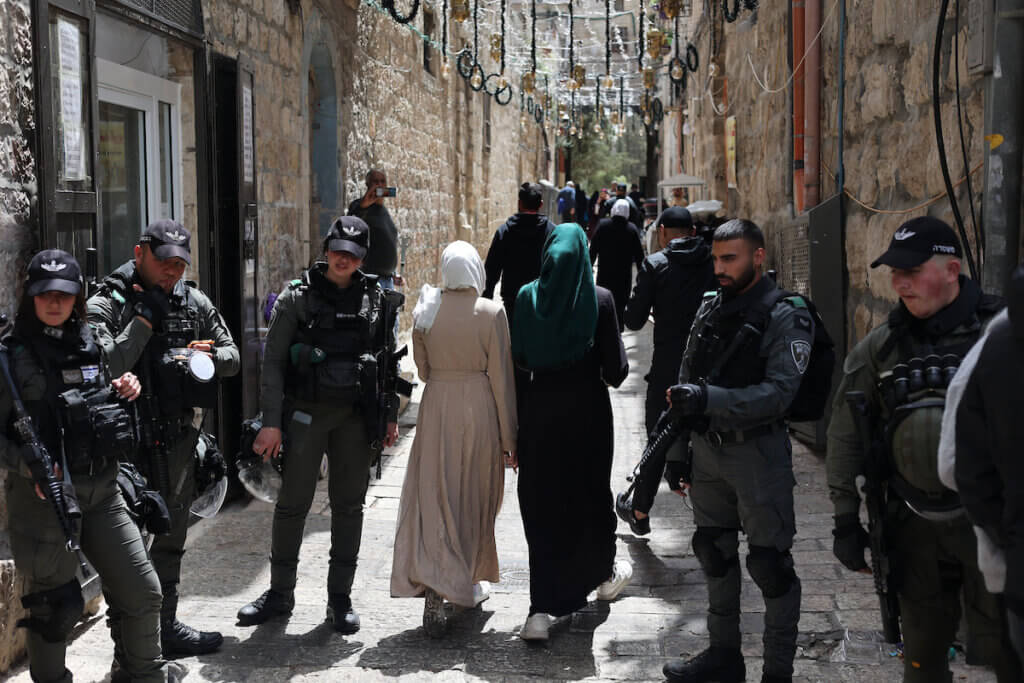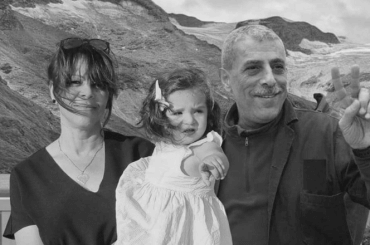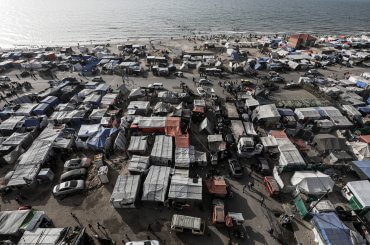Israel’s parliament, the Knesset, passed what rights groups are calling one of the “most intrusive and draconian legislative measures” ever passed in Israel’s history.
On Wednesday, November 8, Israeli lawmakers passed an amendment to the country’s Counter-Terrorism Law by a 13-4 majority, criminalizing the “consumption of terrorist materials,” carrying a maximum of up to one year in prison.
Outlined in the new law is an offense described as the “systematic and continuous consumption of publications of a terrorist organization under circumstances that indicate identification with the terrorist organization.”
According to Adalah – The Legal Center for Arab Minority Rights in Israel, the “publications” referenced in the law include “expressions of praise, support, or encouragement of terrorist acts, direct calls to commit an act of terrorism, as well as documentation of an act of terrorism.”
The bill designates Hamas and ISIS as the terrorist organizations to which this offense applies and grants the Minister of Justice the power to add other organizations to the list.
“This law is one of the most intrusive and draconian legislative measures ever passed by the Israeli Knesset, since it makes thoughts subject to criminal punishment,” Adalah said in a statement.
“At a time when Israeli authorities are ramping up their campaign to stifle the freedom of expression of Palestinian citizens of Israel, conducting extensive surveillance of their online communications, and making unprecedented arrests for alleged speech-related offenses, the Israeli Knesset has enacted legislation that criminalizes even passive social media use. This legislation encroaches upon the sacred realm of an individual’s personal thoughts and beliefs and significantly amplifies state surveillance of social media use,” the group said, adding that they plan to petition the law in the Israeli Supreme Court.
The new law is the latest development in Israel’s crackdown on Palestinians and on their freedom of expression online. Since October 7, Palestinian citizens of Israel and residents of occupied Jerusalem have faced targeted harassment campaigns online, at work, and in universities, often resulting in dozens of arrests.
Last month, Palestinians described the climate to Mondoweiss as a “witch hunt,” adding that people were being policed for mere expressions of Palestinian identity and concern over Gaza.
Adalah attorney Salaam Irsheid told Mondoweiss that in many cases people are being suspended or even prosecuted on a criminal level for simply liking a post on social media or for following pages that are posting about the situation in Gaza. She added that many of the cases that have come across Adalah’s desk are instances in which students or professionals expressed grief over the humanitarian situation in Gaza or simply wrote verses of the Quran that are being misinterpreted or wrongfully connected to support for Hamas.
“These posts fall under freedom of expression. There is nothing calling for or justifying violence of any kind,” Irsheid said. “Lots of the people approaching us say that the things they are being accused of are very far-fetched. Nothing I have seen violates any sort of law.”
As of October 25, the Israeli police said it had arrested 110 people since the start of the war for “allegedly inciting violence and terrorism,” mostly on social media.
The arrest campaign has not been limited to Palestinians with Israeli citizenship or residents of occupied Jerusalem, but also extends to the occupied West Bank, prisoners’ groups told Mondoweiss.
Among the thousands of Palestinians who have been arrested in the West Bank since October 7, dozens have been arrested over social media activity, a spokesperson for the Palestinian Prisoners Club told Mondoweiss.
Earlier this week, Israeli forces raided the Ramallah-area village of Nabi Saleh and arrested 22-year-old Activist Ahed Tamimi from her home on charges of “incitement to hatred” and “terrorist activities” on social media. Tamimi was arrested over an Instagram post calling for violence against settlers in the West Bank, but her family says the profile that published the account is a fake profile impersonating Tamimi, and that she did not write or publish any such posts.
The extension of the social media-based arrests to the West Bank corroborates the testimony of rights groups that say Israel is applying the new law on “consumption of terrorist materials” broadly and without discretion as a tactic to censor and imprison Palestinians.
The censorship has extended beyond social media as well, with Israelis and Palestinian politicians in Israel arrested for protesting against the ongoing Israeli war on Gaza, which entered its 34th day on Thursday. The Israeli police have implemented a sweeping ban on any protests or demonstrations in solidarity with the Palestinian people in Gaza during the war.
Five leaders of the Palestinian minority in Israel, including the Chair of the High Follow Up Commission, Muhammad Barakeh, and former Members of Parliament Haneen Zoabi and Sami Abu Shadeh, were arrested on Thursday morning during a peaceful vigil in Nazareth calling for a ceasefire.
The Communist Party of Israel (CPI) and the Democratic Front For Peace and Equality (Jabha-Hadash) released a joint statement calling the arrest “a draconian anti-democratic measure, which reflects Israel’s continued assault on free speech, political association, and the civic rights of the Palestinian population.”



Some democracy.